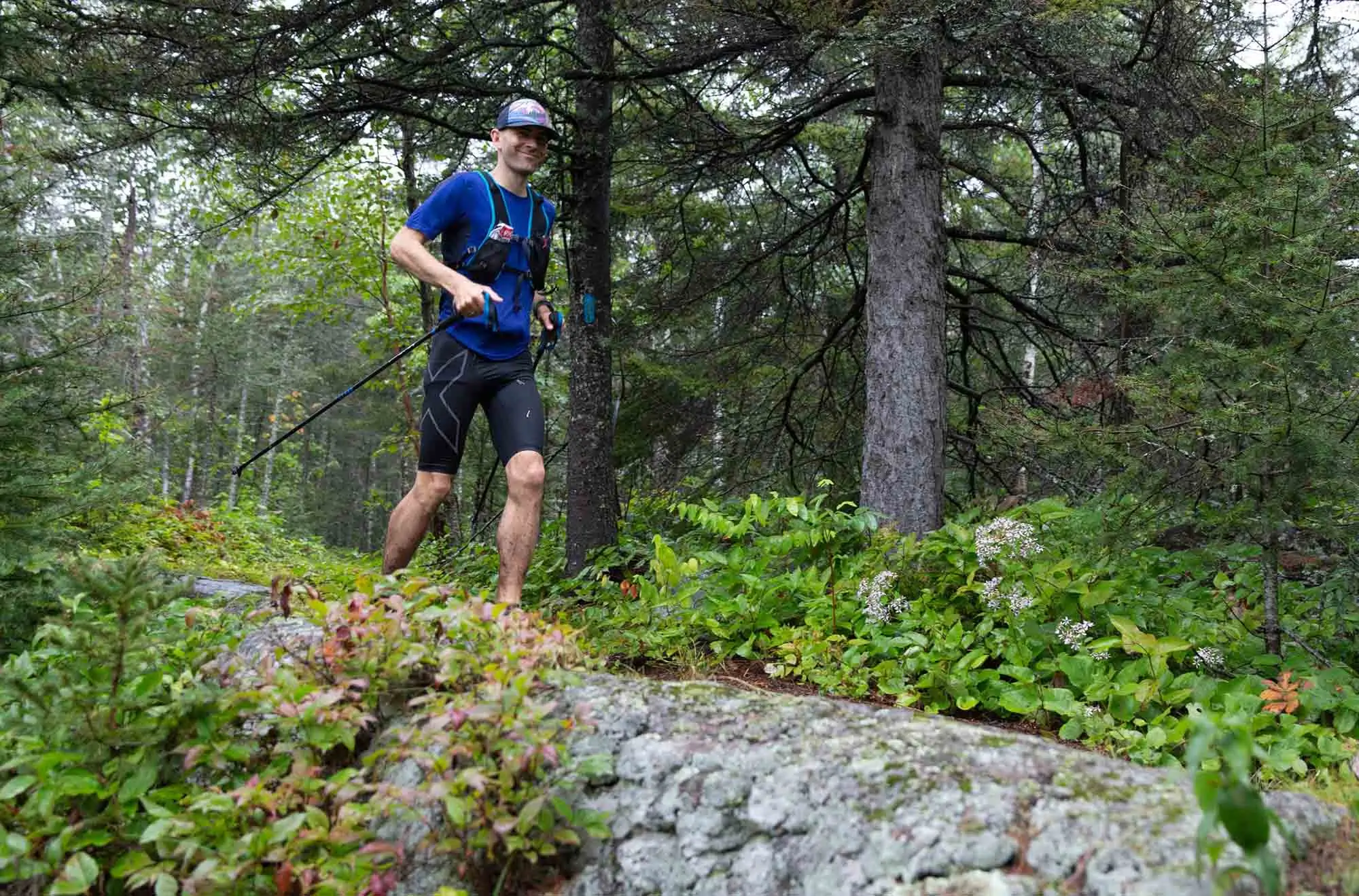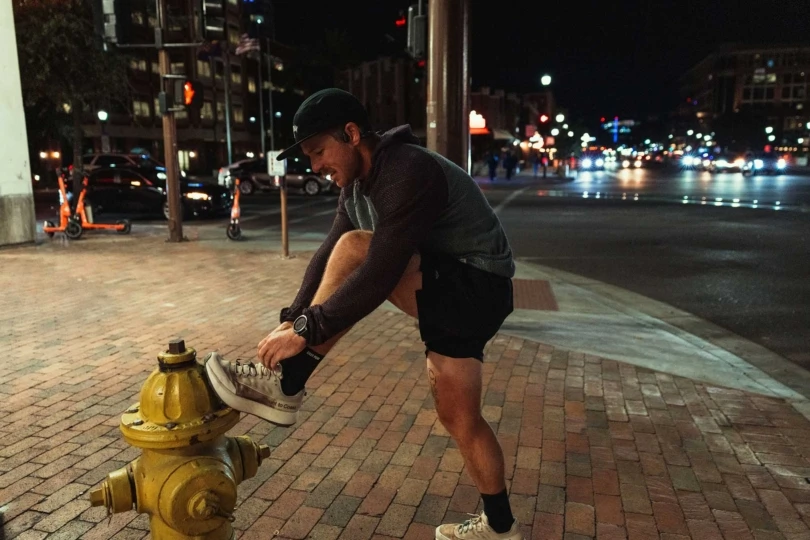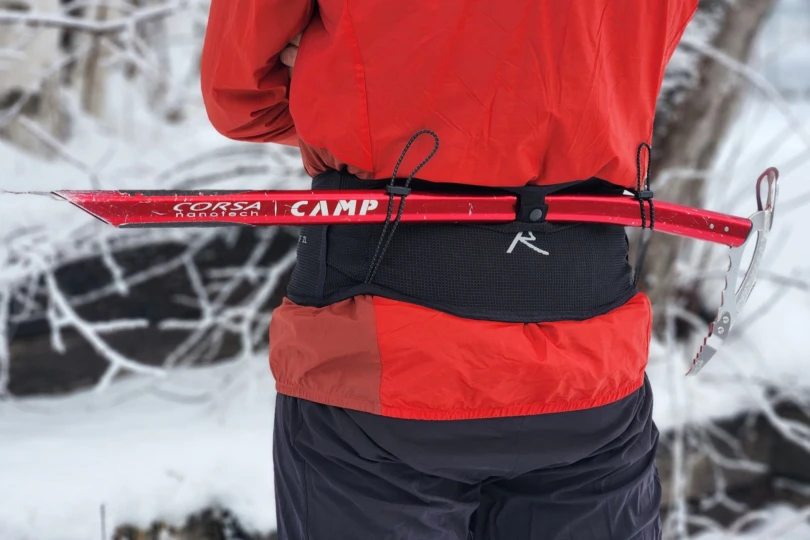For some people, running so far and for so long that you start hallucinating would sound like something to avoid. But when Alan Chapman saw a litter of piglets waving at him during his record-setting, unsupported run of the Superior Hiking Trail in Minnesota last week, it didn’t bother him.
“I haven’t had too many hallucinations in the past, but it wasn’t suffering — I enjoyed it,” Chapman said in an interview Wednesday. “I thought it would be scary, but the things I was saying were so wild, it was just fascinating … I knew my brain was playing tricks on me.”
For Chapman, that happy-go-lucky attitude paid off, as the 40-year-old geology professor has likely set a new fastest known time (FKT) on the Superior Hiking Trail. This 310-mile trail along Lake Superior is notoriously rocky, full of exposed tree roots, and involves more than 41,000 feet of elevation change. But according to Chapman’s calculations, he beat the previous record in 2020 by about 3.5 hours.
Fastest Known Time still needs to verify Chapman’s results — but he’s just feeling joyful about the experience of finishing a gorgeous trail in his home state.
“My mind and spirit are pretty psyched at the moment,” he said. “It’s just one river after one another, and each one has its own character. I got to experience the personality of the entire trail — all at once.”
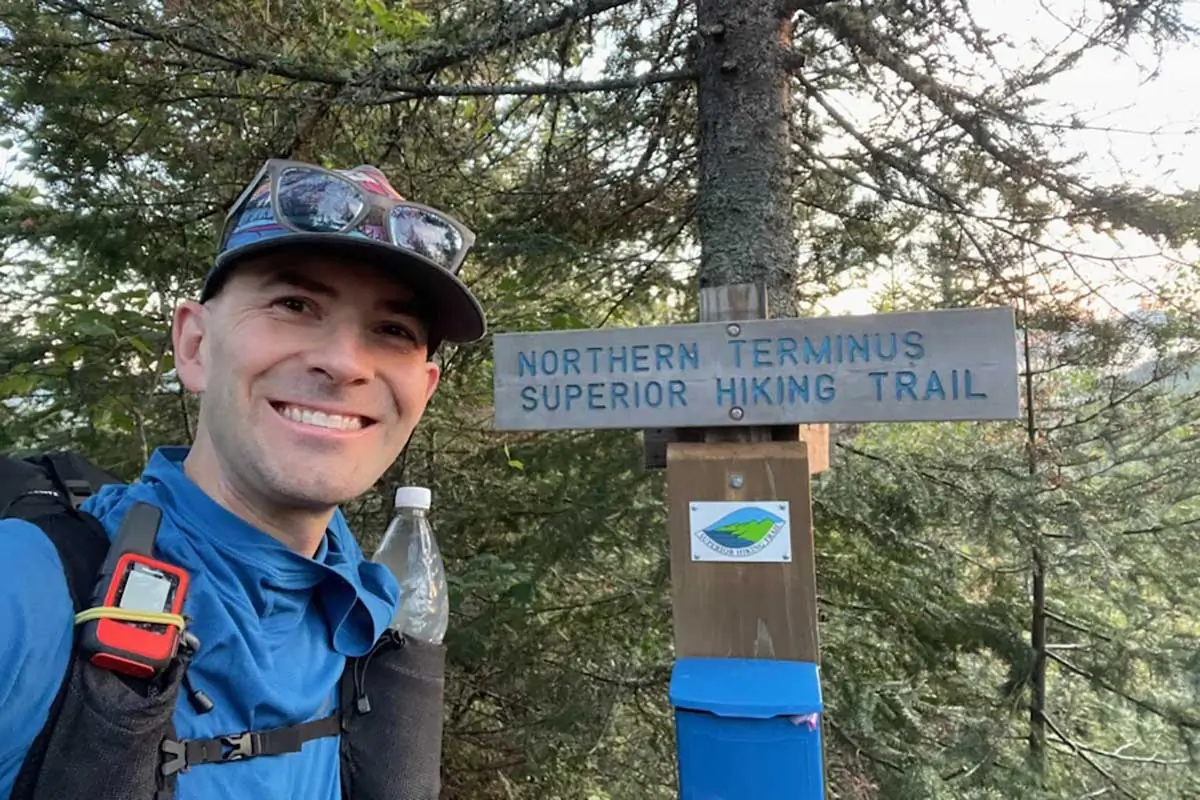
6 Days of Running
Jeff Rauenhorst established the last fastest known time on the Superior Hiking Trail in 2020, when he finished it in 5 days, 17 hours, and 59 minutes. Like Chapman, Rauenhorst did the trail without any support along the way.
When Chapman completed the trail on Saturday at 8:20 p.m., he’d shaved a few hours off the record, with a time of 5 days, 14 hours, and 12 minutes.
It’s not clear how often ultramarathoners attempt new records on the trail, according to a spokesperson for the Superior Hiking Trail Association. But there’s a big trail running community in nearby Duluth, Minn., and plenty of access to this free-to-use trail.
“He traversed 41,000 feet of elevation change, carried all his own food, and navigated the famously rugged ridgeline of the Sawtooth Mountains,” said Annie Nelson, Development and Communications Director for the association. “It looks really likely that he set a new record, and we’re really excited for him.”
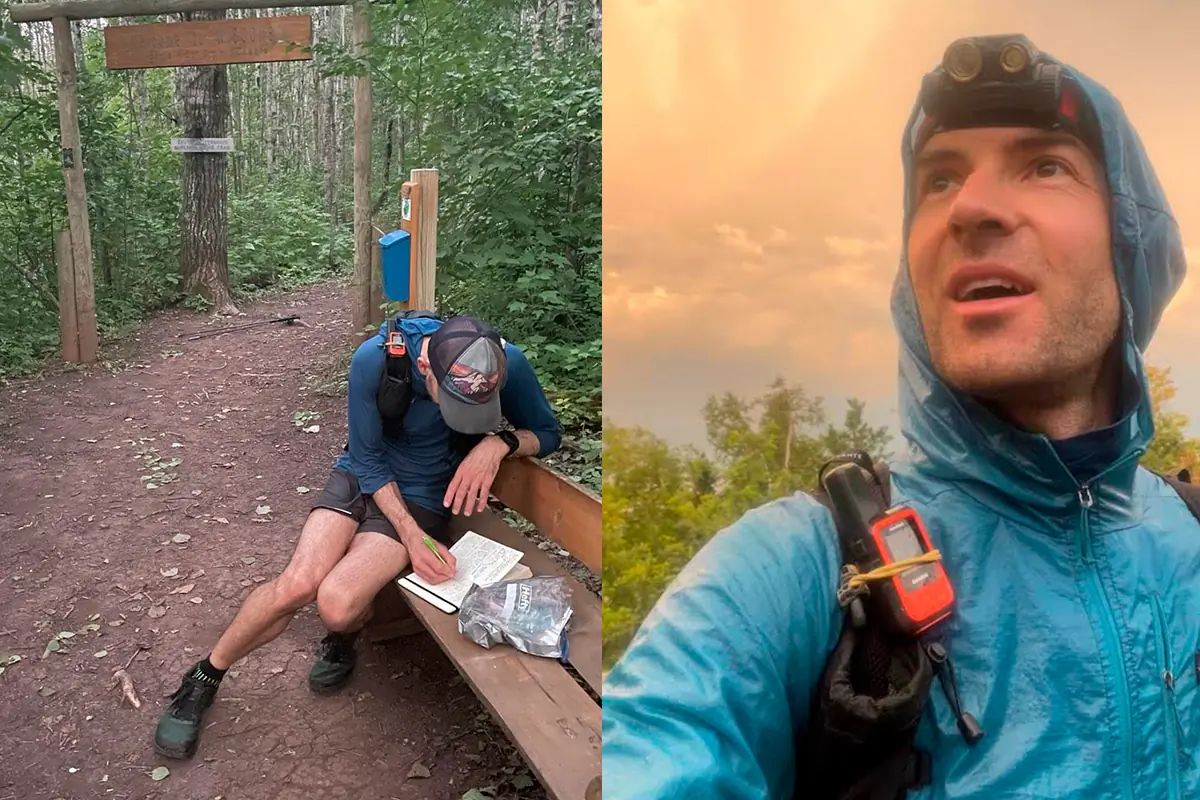
Finding Joy in the Struggle
While Chapman has done a few ultramarathons, he called himself a “noob” without much experience in long-distance running. But, that’s not exactly true.
Before last week, he’d never run for more than 135 miles. That’s already elite level for most of us, but Chapman ran it as part of the Arrowhead 135, a brutal, sub-zero trek through the frozen Minnesota wilderness.
As he described the experience of finishing almost triple that distance on the Superior Hiking Trail, Chapman sounded giddy. He’s eager to keep reliving it — despite the intensity of what happened to him. He endured an “emotional rollercoaster” of self-doubt every day.
At one point, he forgot his cellphone while enjoying a river with “super tasty” water, and had to backtrack for over a mile before finding it. On his final day, as his shoes started pooling with blood from the wear on his feet, several hornets decided to sting him on the ankle and head.
“I found myself beginning to develop some tools for seeing the positive side of that,” he said of the hornet stings. “I got a surge of adrenaline. It hurt bad, but then I thought, well now I got some adrenaline and I’m moving faster, so that’s cool.”
Alan Chapman Superior Hiking Trail FKT
As a geology professor at Macalester College in St. Paul, Chapman will soon travel to Alaska to collect some rocks with some colleagues, which he said would be “pretty mellow.” But he’ll still be thinking about the Superior Hiking Trail, he said. Before the run, he’d been reading about caterpillars in their chrysalises, and how all their cells are reassembled into something completely new.
“This is kind of like that,” he said. “Where I’m being disintegrated and reintegrated, and seeing the positive ways in which that metamorphosis has happened. It was a special experience.”
“So, you’re now a butterfly?” I asked him.
“Yes!” he said, laughing. “I am now a beautiful butterfly.”
